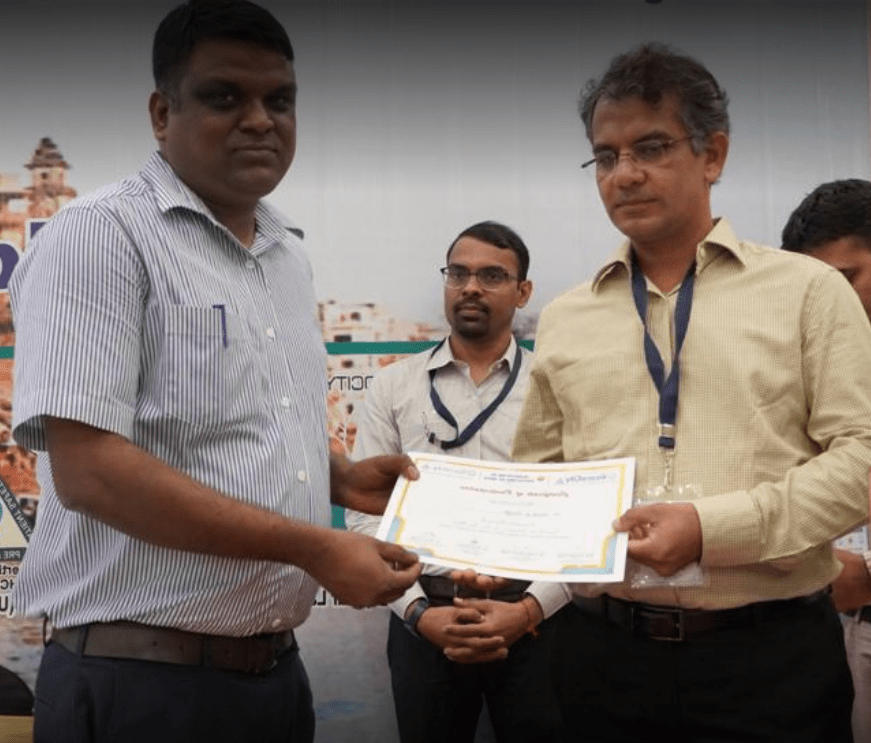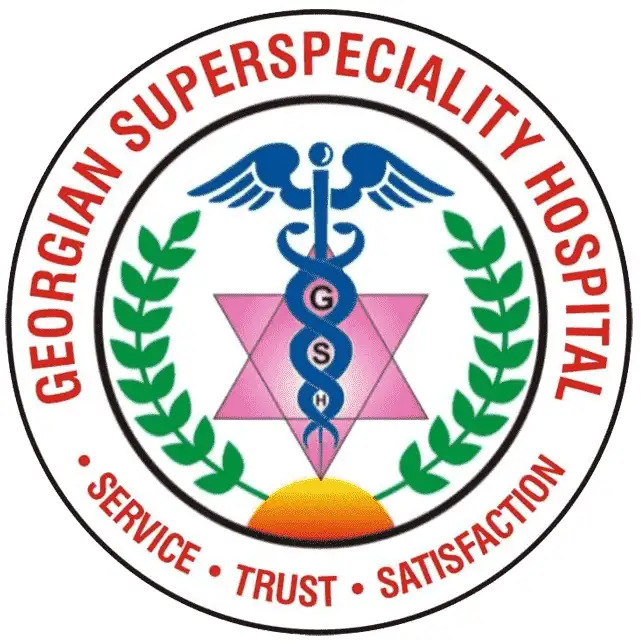Advanced Neurosurgery Care in Varanasi
At Georgian Superspeciality Hospital, we provide cutting-edge neurosurgical care for a wide range of brain, spine, and nerve disorders. Our highly experienced neurosurgeons use state-of-the-art technology and minimally invasive techniques to ensure the best outcomes for our patients.
Why Choose Our Neurosurgery Department?
Highly Experienced Neurosurgeons – Our team comprises some of the best neurosurgical specialists in Varanasi.
Advanced Technology & Equipment – We utilize high-precision MRI, CT scans, neuronavigation, and intraoperative monitoring for accurate procedures.
Minimally Invasive Procedures – Faster recovery, reduced pain, and minimal scarring with our advanced techniques.
Comprehensive Neuro Care – Diagnosis, treatment, and rehabilitation under one roof.
24/7 Emergency & Trauma Care – Immediate neurosurgical intervention for head injuries and stroke cases.
Meet Our Expert Neurosurgeon – Dr. Nandji Singh

Neuro, Brain & Spine Surgeon
Speciality
- Experience – 15+ years
- Language – Hindi, English, Kannada, Telgu, Bhojpuri
- Type Of – Neuro, Brain & Spine Surgeon
Our Neurosurgery Services
1. Brain Surgery & Trauma Care
Brain Tumor Surgery – Treatment for benign and malignant tumors with microsurgical and stereotactic techniques.
Head Injury & Trauma Management – Emergency care for traumatic brain injuries (TBI) and skull fractures.
Stroke & Aneurysm Surgery – Clipping, coiling, and endovascular treatments for aneurysms and strokes.
Hydrocephalus & CSF Disorders – Shunt placement for cerebrospinal fluid abnormalities.
2. Spine Surgery & Spinal Disorders
Minimally Invasive Spine Surgery (MISS) – Advanced procedures for spine problems with smaller incisions and quicker recovery.
Slip Disc & Spinal Decompression – Microdiscectomy and laminectomy for herniated discs.
Scoliosis & Spinal Deformity Correction – Surgical and non-surgical management of spinal curvature disorders.
Spinal Tumor Surgery – Removal of cancerous and non-cancerous growths affecting the spinal cord.
Cervical & Lumbar Spondylosis Treatment – Specialized care for degenerative spine conditions.
3. Peripheral Nerve Surgery
Carpal Tunnel & Nerve Compression Surgery – Relieves pressure on nerves for improved hand and limb function.
Brachial Plexus Injury Repair – Restores movement and sensation in the upper limbs.
Facial & Trigeminal Neuralgia Surgery – Treatment for chronic facial pain.
4. Pediatric Neurosurgery
Congenital Brain & Spine Defects – Surgical treatment for conditions like spina bifida and craniosynostosis.
Pediatric Brain Tumors – Specialized care for childhood brain tumors.
Diagnosis
Neurological Examination: This is a comprehensive assessment of the patient’s nervous system function, including motor skills, sensory perception, reflexes, coordination, and cognitive abilities. It helps the neurosurgeon determine the location and extent of any neurological abnormalities.
Imaging Studies:
- Magnetic Resonance Imaging (MRI): This non-invasive technique uses powerful magnets and radio waves to generate detailed images of the brain and spinal cord. It helps in identifying tumors, blood vessel abnormalities, and other structural problems.
- Computed Tomography (CT) Scan: CT scans use X-rays to create cross-sectional images of the brain. They are useful for detecting fractures, bleeding, and certain types of tumors.
- Angiography: This imaging procedure involves injecting a contrast dye into the blood vessels to visualize the blood flow in the brain and detect abnormalities such as aneurysms or arteriovenous malformations.
Electroencephalogram (EEG): This test measures the electrical activity of the brain using electrodes placed on the scalp. It is useful in diagnosing seizure disorders and monitoring brain function during surgery.
Electromyography (EMG) and Nerve Conduction Studies (NCS): These tests evaluate the function of muscles and nerves. EMG measures the electrical activity of muscles, while NCS assesses the speed and strength of nerve impulses. They are helpful in diagnosing conditions like peripheral neuropathy and nerve compression.
Lumbar Puncture (Spinal Tap): This procedure involves inserting a needle into the lower back to collect a sample of cerebrospinal fluid (CSF). CSF analysis can help diagnose infections, bleeding, or certain neurological disorders.
Biopsy: In some cases, a neurosurgeon may perform a biopsy to obtain a tissue sample from a suspicious brain or spinal cord lesion. The sample is then examined under a microscope to determine the nature of the abnormality.
Treatment & Preventions
Most neurological problems are not preventable. The basic guidelines to keeping oneself in good health apply to the health of the nervous system as well. Managing all chronic conditions such as diabetes and high blood pressure under medical supervision is important to prevent neurological problems.
Neurosurgery may be a treatment for some neurological conditions such as:
- Cerebrovascular problems such as aneurysms and blood clots
- Stroke
- Tumours
- Injuries
- Nerve damage
- Epilepsy
- Parkinson’s disease
Other general classification of neurosurgeries is:
- Base Of Skull Surgery: Specialised surgery performed at the base of the skull region.
- Spinal Surgery: Surgery of the spine in order to treat injuries or other neurological issues.
- Peripheral Nerve Surgery: surgery to treat neurological disorders that are present in the nerves outside of the brain and spine.
State-of-the-Art Facilities
Advanced ICU & Neurocritical Care Units – Specialized post-surgical care for neurosurgical patients.
Dedicated Neuro-Rehabilitation Center – Physiotherapy, speech therapy, and occupational therapy for neurological recovery.
High-End Diagnostic Imaging – 3T MRI, high-resolution CT scans, and neuro-navigation systems.
Emergency & Trauma Neurosurgery in Varanasi
Our 24/7 emergency neurosurgery unit ensures immediate treatment for head injuries, spinal trauma, and stroke cases. Timely intervention can save lives and improve recovery outcomes.
Book a Consultation with the Best Neurosurgeons in Varanasi
If you or a loved one is experiencing neurological issues, consult our expert neurosurgeons today.
📍 Visit Us: Georgian Superspeciality Hospital, Varanasi
📞 Call Now: +91 79915 08183
Experience world-class neurosurgical care at Georgian Superspeciality Hospital – where expertise meets compassionate healthcare.
